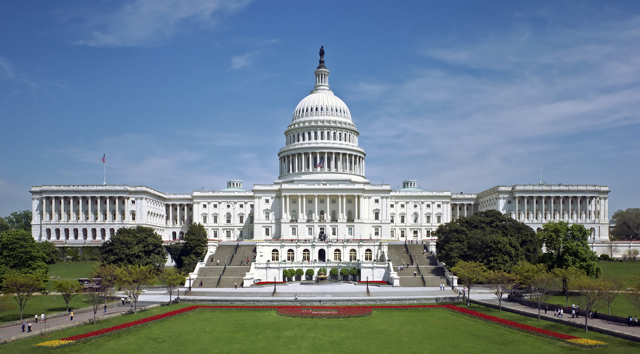HPA Tech Retreat: Washington Update Examines IP, FCC, FAA
February 23, 2017
At the HPA Tech Retreat, Thompson Coburn attorney Jim Burger delivered his annual Washington Update, opening with a clip of President Trump suggesting that his government is operating like a well-oiled machine. “I have nothing to say,” said Burger in response, reporting that Marco Rubio told him, “every day something is new in the Senate.” Burger’s update focused on intellectual property issues, including litigation, as well as actions of the FCC regarding net neutrality and set-top boxes, and the FAA regarding drones.
Burger said the House Judiciary Committee has spent the last two years discussing proposals to change the intellectual property law. The results, explained Burger, are paltry: “They want to move the copyright office out of the Library of Congress but not make it an independent entity,” he said. “It would still report to Congress. They would also establish a copyright advisory committee, and create a copyright small claims court.” Up next, they will address music licensing, “a very thorny issue.”
With regard to litigation, Burger briefly discussed several relevant cases. In Oracle v. Google, in which Oracle is asking for $8.8 billion for Google’s use of its Java APIs, the courts are still deciding, but Burger believes that Google’s commercial use of the APIs means that Google will ultimately lose.
In BMG v. Cox, the music licensing entity accused Cox of being secondarily liable for users infringing 1,397 musical compositions. Cox claimed it had a safe harbor protection, as a mere conduit. But the judge — who revealed that Cox had a 13-strike policy that reset the beginning of every month — chastised the operator for its abuse record, and a jury found Cox guilty of “willful contributory infringement.”
In Disney Enterprises v. VidAngel, the latter rented movies with filters for $1, claiming that their model was based on “space-shifting.” But the court found it was a circumvention of the DMCA, finding against VidAngel. In Paramount Pictures v. Axanar Productions, a film production attempted to make a movie faithful to the “Star Trek” franchise depicting a battle that took place 21 years before the original “Star Trek.” The 9th Circuit court found that the movie takes directly from “Star Trek” in a plethora of ways. The film production lost on fair use, and it settled with Paramount.
Finally, in Naruto v. David J. Slater, the 9th Circuit court decided that a monkey that took a selfie could not hold the copyright to it. But PETA appealed, saying the Constitution intended the broadest possible meaning. Burger notes that PETA has an interesting, potentially valid point, because the Copyright Act protects “original works of authorship,” not works of human authors.
Net neutrality, which the DC Circuit Court of Appeals supported, is now essentially dead under the new Trump-appointed FCC chair Ajit Pai. “Pai favors an open Internet, and is opposed to Title II,” said Burger. “And without Title II, there is no net neutrality.” The FCC may or may not continue to enforce the current regulations, but there are several bills before Congress to destroy net neutrality. Pai has also ended discussion that would have potentially resulted in unlocking set-top boxes.
Drones have become increasingly useful in the motion picture industry, and the FAA is beginning to create some rules. “But under the Trump administration, for every new regulation, two have to be stripped away,” said Burger. “And drones are so new, there aren’t enough regulations to do that.” The drone industry has gone to the White House to ask for an exemption from that rule.


No Comments Yet
You can be the first to comment!
Sorry, comments for this entry are closed at this time.